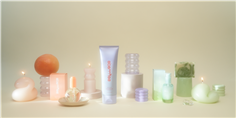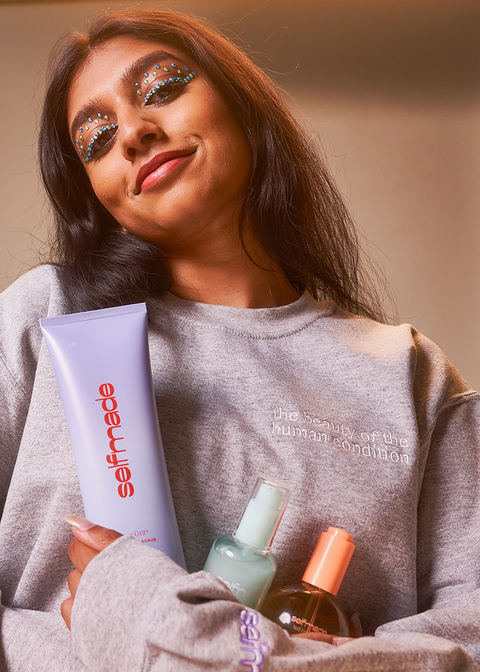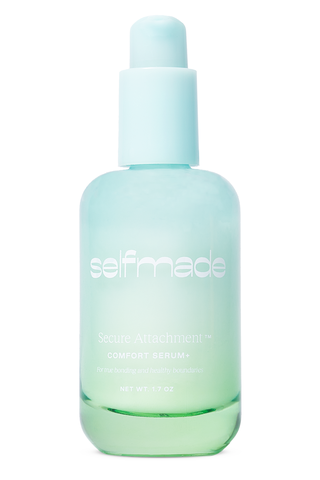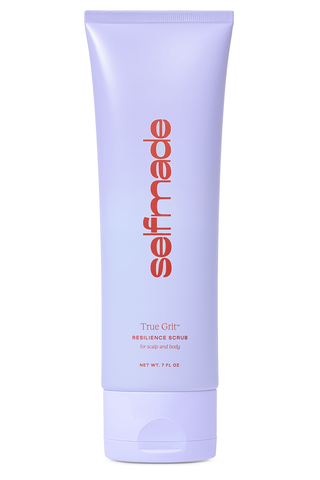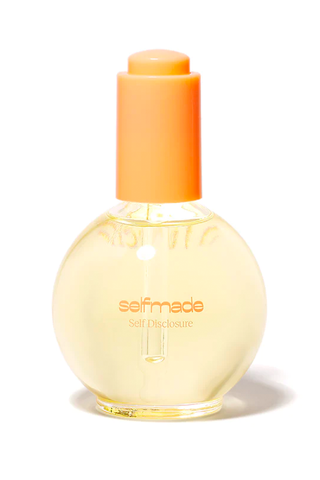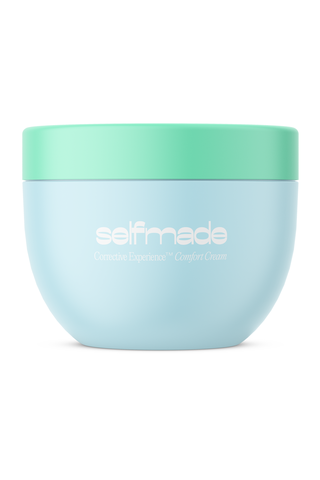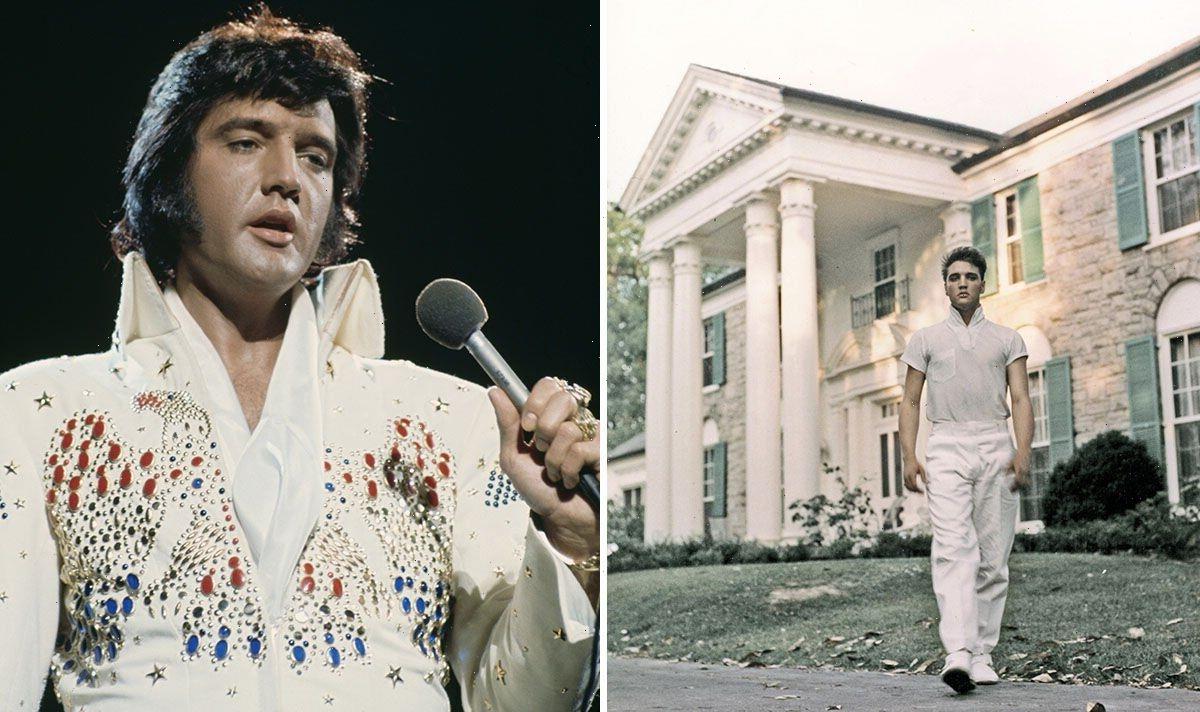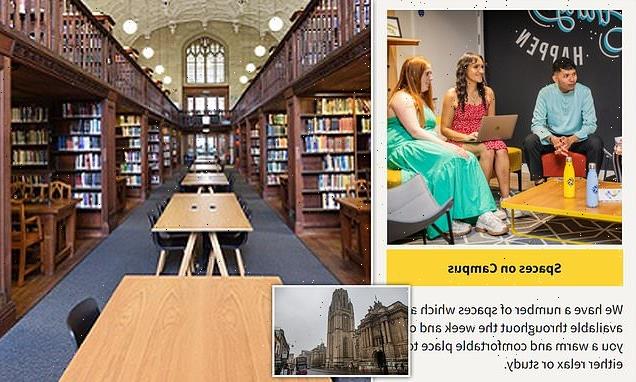Whenever I’m feeling anxious, my self-care-as-therapy routine almost always revolves around beauty—a calming skincare routine, a mood-boosting makeup application, etc. Ironic, because it’s often the beauty industry itself causing my angst (if beauty standards weren’t so unrealistic, I might not need to put on a bright-red lipstick to feel more confident). This paradox is one reason Stephanie Lee created Selfmade, a company that focuses equally on the physical and mental sides of beauty.
Her mission is to reject harmful, outdated beauty norms and instead foster a sense of worth via wellness-minded self-exploration. Ultimately, she says, beauty is about “how we feel—rather than look—when we nurture and trust in our relationship with ourselves.”
Selfmade launched in 2020 with three multifunctional skin and personal care products: a serum, an exfoliant, and an oil. Each represents one of the brand’s key pillars: attachment, resilience, and intimacy. “These are core concepts for understanding self-worth that I learned in therapy during my own mental health crisis,” says Lee.
Shop the Selfmade product collection, below:
If you’re dealing with dryness, irritation, inflammation, or breakouts as a result of stress, reach for this calming serum filled with anti-inflammatory aloe vera and cucumber extracts. And don’t just take my word for it: This is Selfmade’s best-selling product and Lee’s personal favorite.
This all-over scrub (srsly—you can use it on your body, face, and scalp) isn’t just a delightful in-shower self-care moment. The formula is full of ingredients your skin will love, including antioxidant-rich vitamin C, antimicrobial tea tree oil, and moisturizing glycerin.
This body and intimacy oil hybrid is my holy grail because it doesn’t leave my skin feeling sticky or tacky after I massage it in. The magic? A blend of lightweight oils (including safflower oil and sunflower oil) plus nourishing vitamin E. I legit use it everywhere.
“Glassy, slugged skin” = how Lee described my skin would look and feel after layering on this rich cream (this is entirely accurate, btw.). Made with humectants like hyaluronic acid and glycerin, this bb makes skin feels softer and plumper and soon as you put it on.
“I never had a relationship with mental health until I started in the beauty industry after working in the White House with Michelle Obama,” Lee says. When she dealt with her own mental health struggles in 2016, she realized “the way that we talk about ourselves, the way that we show up in this world, it’s how we ultimately associate our worth with how much we make, what title we have, how good our skin looks.” It was then that she started therapy to gain the tools and resources to improve her own emotional well-being, which is how Selfmade was born.
Lee has dubbed her line the “first emotionally intelligent personal care brand.”
Selfmade isn’t just telling us to throw on a full-coverage foundation or slather our faces in a retinol cream to feel better about ourselves. Lee’s mission was to create a line that actually had the power to understand and ultimately improve people’s mental health. “We should be using our skin as data points for what’s inside,” she explains. “Instead of being like, ‘I’m so gross, I have a zit,’ which is like what society has conditioned us to think, reframe that to ‘I have a zit, let me take care of my skin because it’s the largest organ in my body and it takes care of me. Maybe this zit means I need to slow down and better manage my stress.”
The bottom line: We should all be asking ourselves how mental health and emotional well-being affect skin and body function and not just focusing on the outward appearance of our skin.
Everything in Selfmade’s high-quality line is clean and sustainably produced and designed to foster healing moments of self-care outside the tricky world of aesthetic ideals. “Beauty can be a ritualistic tool for calming down our bodies and practicing loving ourselves,” explains Lee. “The times we spend putting something on our face or touching our skin are all valuable opportunities for self-exploration.”
Source: Read Full Article
